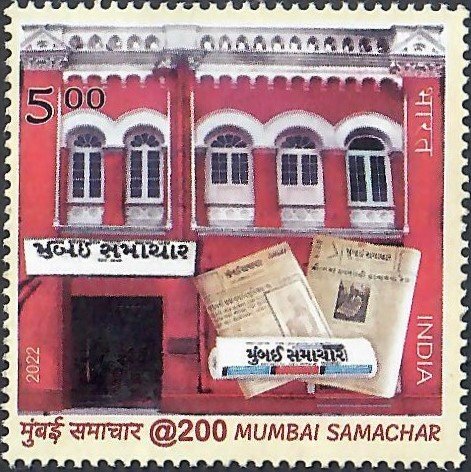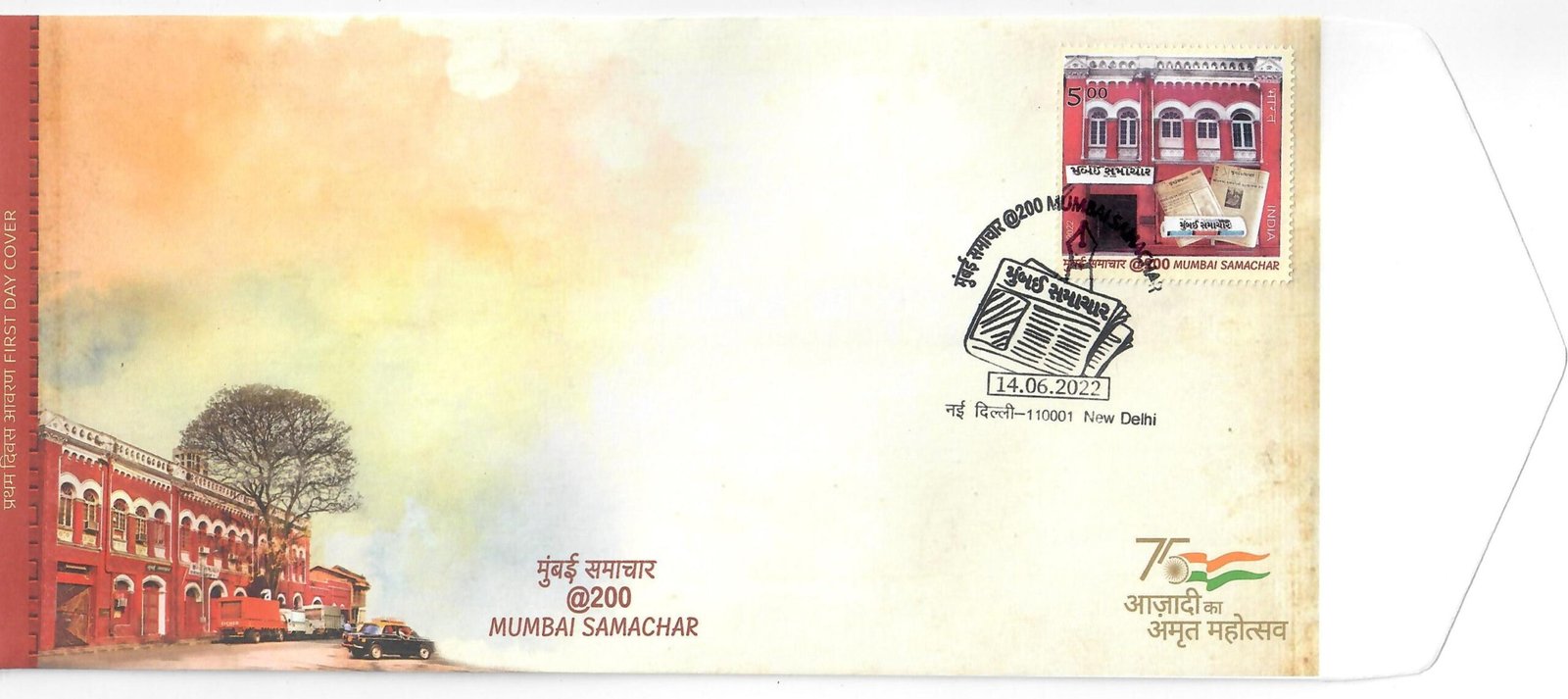Bicentenary of Publication of “Mumbai Samachar”

Technical Data
| Date of Issue | June 14, 2022 |
|---|---|
| Denomination | Rs. 5 |
| Quantity | 301,600 |
| Perforation | comb 14½ |
| Printer | Security Printing Press, Hyderabad |
| Printing Process | Wet Offset |
| Watermark | No Watermark |
| Colors | Multicolor |
| Credit (Designed By) | Ms. Gulistaan |
| Catalog Codes |
Yvert et Tellier IN 3481 Stanley Gibbons IN 3817 Michel IN 3804 |
| Themes | Anniversaries and Jubilees | Newspapers |
Mumbai Samachar Stamp – Celebrating 200 Years of India’s Oldest Newspaper
The Power of the Press in Modern Civilization
Newspapers have always been the backbone of modern civilization. They keep us informed about the latest developments, shape public opinion on issues of national and international importance, and provide a platform for people’s voices to be heard. They also guide citizens towards ethics, responsibility, and good citizenship.
Among the many newspapers that have shaped India’s history, Mumbai Samachar holds a very special place. Recognized as Asia’s oldest existing newspaper, it continues to remain a trusted voice in journalism even after two centuries.
The Legacy of Mumbai Samachar
First published on 1st July 1822, Mumbai Samachar was founded by Fardunjee Murazban, a Parsi priest, scholar, and pioneer of Gujarati journalism who also established India’s first printing press in 1812. What began as a small 14-page pamphlet in Gujarati soon grew into a powerful voice for the business community of Bombay (now Mumbai).
In its early years, the paper featured business updates, death announcements, and shipping schedules—an essential resource for merchants trading through Bombay’s busy port. Initially a weekly publication, it became a bi-weekly in 1832, and by 1855, a full-fledged daily.
Witness to India’s Transformation
Over the decades, Mumbai Samachar chronicled the transformation of the Seven Isles of Bombay into modern-day Mumbai, India’s financial capital. Its nationalistic editorial policies during the freedom struggle won the admiration of stalwarts like Mahatma Gandhi and Sardar Vallabhbhai Patel, who even visited its headquarters for discussions.
From reporting on the Bombay Stock Exchange since its inception in 1875 to mentoring generations of Gujarati journalists, the newspaper has remained an integral part of India’s press history.
Endurance Through Centuries
Despite challenges—two World Wars, the freedom struggle, economic crises, and even the COVID-19 pandemic—Mumbai Samachar has endured. Today, with more than 200 staff members and offices across multiple centers, it continues to publish a single daily edition, carrying forward its 200-year-old legacy.
The newspaper remains committed to credibility, authenticity, and Gujarati language promotion, while also embracing change in an age of digital media.
The 200 Years of Mumbai Samachar Commemorative Stamp
To honor this remarkable journey, the Department of Posts issued a Commemorative Postage Stamp marking the completion of 200 years of Mumbai Samachar. The stamp is a tribute not only to Asia’s oldest newspaper but also to the enduring values of responsible journalism, Gujarati heritage, and India’s press freedom.
First Day Cover

